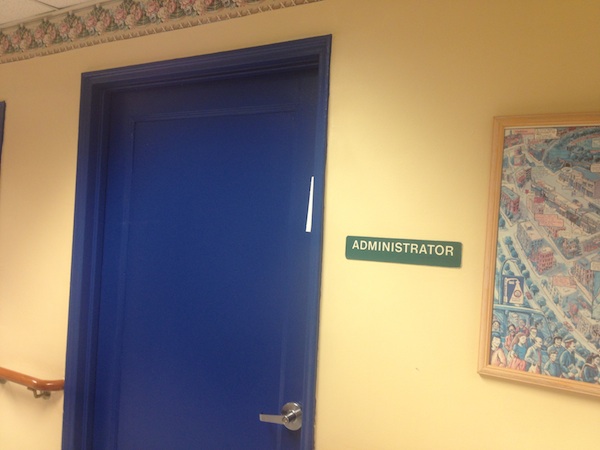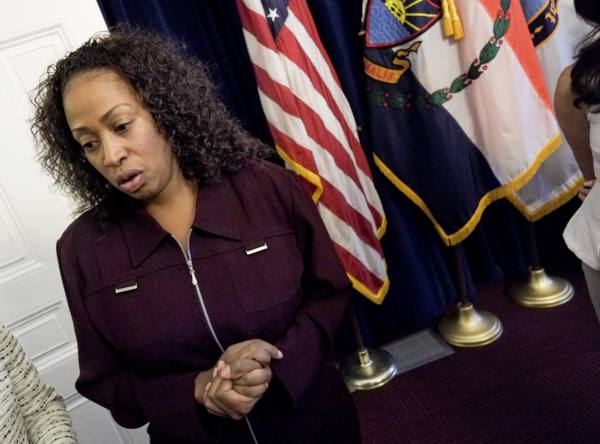Aftermath of Tragedy: New York City's Lowest-Rated Nursing Homes

Quality care in nursing homes is largely defined by the nurses and nurse assistants on staff. They perform such critical tasks as feeding and bathing elderly residents, dispensing medications and ensuring that frail residents avoid bedsore wounds. A comprehensive federal study conducted in 2006 concluded that staff shortages dramatically impair the health and safety of nursing home residents. Yet 61 percent of New York City’s nursing homes fail to provide a sufficient level of staff care to be ranked as an average facility, according to Medicare data. And 41 percent are rated “much below average.”
The Gotham Gazette examined inspection reports, complaints and court records to take a close look at five of the city’s lowest-rated nursing homes. This is the first of five parts.
Robert Ruiz was designated one of the unsafe smokers at the Mosholu Parkway Nursing and Rehabilitation Center.
But when he lit a cigarette in the home’s smoking room three years ago, the staff member assigned to supervise the smokers wasn’t there.
Ruiz, a 56-year-old resident diagnosed with mental and physical impairments, placed the burning match on the side of his wheelchair seat. A bed sheet on the chair ignited.
Three residents in the room watched in horror, screaming, but unable to help. A security video shows that flames engulfed Ruiz for more than four minutes before the fire was extinguished.
Ruiz was hospitalized in critical condition with burns over 60 percent of his body. Doctors had to amputate his legs. He was administered a continuous intravenous line of painkillers until he died a year later.
A judge awarded the estate of Robert Ruiz a $2.45 million settlement last year while the state filed criminal charges against Mosholu and its administrator, Issac Shapiro.
Unsurprisingly, state Health Department inspectors cited the nursing home for seven fire safety deficiencies three months after the fire. They noted that 24 residents were seen smoking unsupervised just two days after the fire. They also noted that during an unannounced fire drill two months later the staff failed to evacuate 15 residents.
The home was fined a total of $55,575 that year, according to federal records.
The fire is a tragic consequence of shoddy oversight and what can happen when a nursing home fails to enact or enforce policies to ensure the health and safety of its residents. Mosholu continued to have problems after the fire, but currently holds a three-star rating for quality of care (out of a possible five stars), according to the federal Centers for Medicare & Medicaid Services (CMS), which evaluates nursing homes.
However, the 122-bed facility in the Bronx managed to rate only one star for the amount of time its nurses and staff devote to residents’ care. One star, the lowest possible rating, is considered “much below average” for nursing homes, according to the CMS.
On average, a licensed nurse at Mosholu spent one hour and four minutes per day with a patient, according to CMS records. That’s about 30 minutes less than the state and national averages. Registered nurses spent an average of 18 minutes per day per resident – less than half the state and national averages, the records show.
Advocates for the elderly often point to staffing deficiencies as a root cause of many problems that threaten the health and well-being of nursing home residents.
One problem cited by inspectors during the past two years has been the incidence of physical confrontations among Mosholu residents.
In one altercation in 2012, two roommates teamed up to assault a third, according to CMS records. The assailants landed a few punches while the attacked man struggled to retaliate before staff intervened. Each of the three men had a care plan that mandated that they be monitored for violent behavior, but the nursing home staff failed to document the assault as required by the care plans, CMS records show.
A few months after that incident, a resident used his walker to hit his roommate in the chest, CMS records show. The victim wasn’t injured and was transferred to another room five days later. The CMS faulted the facility’s director of nursing for failing to draft a plan to protect residents against such attacks.
“She was unable to provide any explanation as to why a care plan had not been developed to prevent further resident to resident altercations, resident abuse and possible injuries,” the report says.
Two residents nearly came to blows last summer when one accused his roommate of stealing a wristwatch, according to CMS records. Staff intervened to separate the two, made a note on a chart and left. The two men continued to room together for a week until the home’s social worker insisted they be separated.
Medicare inspectors cited Mosholu for 11 deficiencies in health care in 2012, twice as many as the average nursing home in the state. The inspection identified several preventable problems. For example, in a rush to clean up after a meal, a nurse threw a resident’s hearing aid into the trash. The facility did not replace the device. A patient who catheterized himself daily was never taught proper technique for handling waste or for installing and removing his catheter. Another resident received a sedative six times in one week even though it wasn’t prescribed.
Administrators at the home corrected problems and last year’s inspection uncovered only three deficiencies in health care.
Still, 12 percent of Mosholu’s residents suffer from bedsores, double the national average, and worse than 32 of the Bronx’s 45 nursing homes.
Last summer, the facility neglected to treat a 73-year-old resident with a bedsore on his left leg that festered for three months. He did not see a doctor during that time because a nurse failed to deliver a note from the patient’s physician to the administrator charged with lining up doctor appointments, according to Medicare records. The note said the resident needed to see a vascular surgeon as soon as possible. The resident received treatment only after a Medicare inspector intervened.
State law requires every nursing home to have its federal and state inspections prominently displayed and readily accessible. Mosholu’s are not. On two separate occasions the receptionist did not know where to locate them. The reports were located in a long hallway beyond the reception desk, through a set of double doors and around a corner.
Mosholu has not had a full-time administrator since the indictment of Shapiro nearly a year ago. Instead, Suzanne O’Connell, the administrator from nearby Wayne Nursing and Rehab Center, lends her services to Mosholu. (Wayne has had no fines in the past 11 years and fewer complaints and citations than the state average. However, 22 percent of Wayne’s residents suffer from bedsores – the worst in the Bronx – and its staff rating is as low as Mosholu.)
State law requires every nursing home with more than 40 beds to employ a full-time licensed administrator.
O’Connell did not return a request for an interview, and messages left at Mosholu were not returned.
Paulette Gordon, Mosholu’s director of admissions, and Iyabo Yusuf, director of nursing, declined to give a reporter with the Gotham Gazette a tour of the facility. Yusuf said she ran the facility in the absence of a full-time administrator. She said the facility wanted no media coverage.
While the reporter was there, a woman from a service that transports the elderly to doctor appointments arrived to pick up a resident. However, no one in the nursing home seemed to know that the resident had a scheduled appointment.
“It’s always like this,” she said. “How is it that an appointment is made, my company is hired, I’m sent here, and nobody in the home knows about it? Crazy, right?”
Nearby, a wheelchair-bound patient in a surgical mask pounded in vain on a patient coordinator’s office door. Nurses and staff laughed and joked as they passed by, but no one asked the resident what she needed.
In the lobby, a double amputee sat hunched over in his wheelchair. Yusuf looked at him and then turned to the receptionist.
“What’s he doing here?” she asked.
The receptionist shrugged.
Jordon Davidson is a freelance writer and graduate of the CUNY Graduate School of Journalism.
SUNY Expected to Move On Sale Of Struggling Brooklyn Hospital

Despite protests from area residents, and pushback from major elected officials, SUNY Downstate appears set to sell the Long Island College Hospital in Brooklyn to a condominium developer. Mayor-elect Bill de Blasio's flagging campaign was bolstered when he was arrested while taking part in a protest to save LICH this summer. He also clashed publically with the Cuomo administration about the state's handling of the hospital.
De Blasio has been quiet on the matter since his election and opoonents of the LICH's sale have noticed and tried to pressure de Blasio back into the fray.
*Update* The de Blasio camp issued this statement today:
“Through months of legal rulings and community activism, we have managed to secure an acknowledgement from SUNY that there must be a significant and enduring health care presence on the Long Island College Hospital site. That has been no small accomplishment—but it is by no means enough to meet the needs of this community. We are troubled SUNY is poised to give preliminary approval to a plan that will replace so much of LICH’s vital healthcare capacity with luxury condos, while failing to preserve essential services like emergency care. We will continue to fight any plan that fails to provide critical health care for surrounding neighborhoods."
Residents are concerned that their growing community will face a healthcare crisis without LICH's emergency room to serve them. Emergency room wait times in the area have reportedly shot up as LICH began winding down services.
Opponenets of the sale say the request for proposal process was carried out behind closed doors and a number of Brooklyn officials sent a letter to Gov. Andrew Cuomo yesterday asking him for a do-over with the process being transparent.
The group of officials asked Cuomo for the following:
• We request the public release of all information on the existing proposals and applicants of the RFP, as well as a full list of the RFP requirements and selection criteria.
• We request that the entire RFP process be handed over to the court system and that the courts administer the process moving forward.
• We request that a comprehensive public review process be held regarding the RFP and that a community committee be created to evaluate all proposals that meet the minimum RFP requirements.
• We request that the RFP be re-opened should no viable, existing applicants include a full service hospital.
We cannot stress enough the seriousness of this issue in our community and hope that you share our values of transparency, impartiality, and community inclusiveness. Thank you for your consideration.
Sincerely,
Stephen T. Levin, NYC Councilmember
Nydia M. Velázquez, Member of Congress
Marty Markowitz, Brooklyn Borough President
Daniel Squadron, New York State Senator
Joan Millman, New York State Assemblywoman
Brad Lander, NYC Councilmember
Council Approves Protections For Pregnant Workers

NEW YORK — Angie Welfare worked at John F. Kennedy International Airport for more than a decade, often carrying as much as 70 lbs of boxes for a major airline. In 2006, when she found out she was pregnant, a doctor told her to lessen her workload to 10 lbs.
Welfare asked her supervisor to put her on lighter duty. Her boss refused. She took an eight-week leave of absence — without pay and without medical coverage — when she was eight-months pregnant. Welfare said she applied for food stamps for the first time in her life and her home in Jamaica, Queens, was put into foreclosure.
"I planned to work," said Welfare, now 45. "I've always worked to take care of myself. And that was taken away from me."
Stories like Welfare's, said City Council Speaker Christine Quinn, led to today's bill to expand the city's Human Rights Law to prevent employers from discriminating against pregnant workers. The bill was approved 47-to-0, with one abstention, at the Council’s stated meeting.
"No woman should ever have to be forced to choose between the health of herself or her baby and her job," Quinn said in her prepared statement.
{pullquote}No woman should ever have to be forced to choose between the health of herself or her baby and her job -- Council Speaker Christine Quinn{/pullquote}
The speaker said one-fifth of discrimination charges made to the federal Equal Employment Opportunity Commission are pregnancy-related. Over the past decade, Quinn said, those complaints have increased 35 percent.
Mayor Michael Bloomberg’s office affirmed this afternoon that he supports the bill.
The outgoing mayor has been a staunch defender of the business community and unsuccessfully vetoed a recent bill that made it illegal for employers to discriminate against the unemployed because it would "damage lots of small business.”
The sponsor of the bill aimed at prohibiting discrimination against pregnant workers, Bronx Councilman James Vacca, explained how the law's main purposes are both to enshrine protections for pregnant employees and to provide employers with a full understanding of the new law as a preventative measure.
"I think the aim of the legislation is very clear: We want to reduce the cases that end up going to court or to the Human Rights Commission," he said. "We want clarity, though, and that's what employers will be getting."
Vacca said he hadn't heard of any opposition to the bill from the business community.
Under the new law, women can bring actions against employers in civil court for damages and for other remedies, including requiring the offending business to reform its practices.
Similarly, women can bring a complaint to the city's Human Right Commission, which can order the employer to halt its practices, hire back employees, require back-pay for said employees or provide compensatory payments for damages.
Those employers that the commission finds a fault who fail to comply with the commission's orders can be fined anywhere between $50,000 and $250,000. Willful violators can be found guilty of a misdemeanor with possible jail time and more fines.
Welfare still works for the airline. Currently on a medical leave of absence, her civil case against the airline has been on hold since the company filed for bankruptcy in late 2011. But her baby, Arnetta, was born healthy in 2006, and she found out she was having another child soon after.
This time, Welfare, who first shared her story with the council's Committee on Civil Rights in June, said that she hid it "so that this would not happen again."
"I does not feel good when you wait years hoping justice ill be one but having no guarantees," she said in her testimony. "I hope this law is passed and future women in my situation will be helped."




